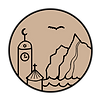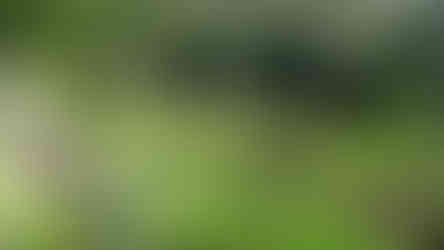The Israel nature and park authority is the national body that is in charge of protecting nature in Israel. They are responsible for declaring nature reserves and parks and regulating and enforcing the rules that apply to these reserves and parks.
The Israel nature and park authority manage 569 parks and reserves (69 of them are by payment, the rest are open and free). In land that’s about 9,000 square kilometres. An interesting fact - a lot of open reserves (especially in the Negev region) are simultaneously military training areas.
The most famous and beautiful treks that Israel has to offer visit different nature reserves and parks. It’s important to keep in mind some basic rules when you’re trekking in these areas.
10 simple guidelines for trekking in nature reserves
1. If sleeping inside a nature reserve, it must be inside the borders of an official campsite.
2. You cannot in any way endanger or harm the flora and fauna in a nature reserve (you cannot hunt, capture or feed the animals you encounter, pick or harm plants and wildflowers or burn any local flora).
3. You cannot light a campfire outside of a campsite during the day or night in a nature reserve (you may light a portable stove).
4. You have to follow the marked trails, it is prohibited to travel in a nature reserve outside of the marked trails.
5. It is prohibited to hike after sunset and before the first light.
6. It is prohibited to listen to loud music.
7. You must take your trash with you (there are very few trash cans along trails because animals always find their way in).
8. You can travel with your pet dog with a leash in most nature reserves and parks. You should check beforehand specifically for each park and reserve.
9. You should keep in mind that if a ranger catches you breaking any of the rules listed above he can give you a 700 shekel fine each. Sometimes they can just give a warning, it depends on the severity of the case and on the specific ranger that you’ll meet.
10. Outside of official nature reserves you don’t have to follow these specific guidelines, but of course most of them should be held everywhere in nature.
The borders of all nature reserves are marked on the Israel hiking map. They will be marked by a small green line and two green dots. The green border fades away into the nature reserve. and look like this:

You can find more information about the Israel nature and park authority on their website here.
I usually only give tips and trekking guides for long and of the beaten treks in Israel. Most of the paid nature reserves in Israel offer short hikes, but they can be amazing nonetheless. Here is a list of my 3 favorites.
My top 3 Favorite Nature Reserves (that are with payment):
Baram National Park - an ancient synagogue in the Upper Galilee dated back to 500 A.C. What makes this place interesting is that the synagogue is surrounded by ruins of the Arab Village Baram that was vacated during Israel's independence war.
Nimrod Fortress National Park - a castle dating back to mostly the Mamluk reign of Israel (around 1300 A.C.). The castle is huge and very impressive. It sits on the foothills of the Hermon Mountains, and so the views are extraordinary.
Shivta National Park - a long forgotten city, sitting in the middle of the desert, surrounded by sand and dust. The city is dated back to the Byzantine era, around 500 A.C. and so there are some incredible ancient churches standing erect in the desert light.
I hope you found this post helpful and informative. I would love to hear your thoughts and comments, you can contact me here. Or comment below.
*Disclaimer*
It is the responsibility of the users of this website to be prepared for all possible conditions while trekking in Israel. Beware that conditions of trails may change day to day and season to season. All users of this website and its information assume full responsibility for their actions and judgments while trekking. The owner and authors of this site disclaims all liability including that of accident, loss, injury, or any other damage that may be sustained by anyone using the information contained on this website.
.png)








Kommentare